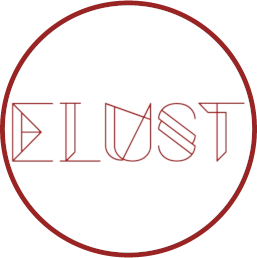The landscape of sex education is undergoing a profound transformation, failing to keep pace with the rapid advancements in digital technology. Traditional methods of sex education, once confined to classrooms and textbooks, now compete with the vast and unregulated expanse of the internet. This shift has led to an increasingly complex battle for influence, with the sex industry and online communities stepping in to fill the gaps left by formal education. Despite the idealistic goals of open education—free, accessible learning resources for all—the realm of sex education presents unique challenges, marked by a lack of regulation and the pervasive influence of pornography.
The digital age has democratized access to information, allowing individuals to explore their sexuality and sexual health without the constraints of traditional barriers. However, this freedom comes at a cost. The sex industry, leveraging the anonymity and reach of the internet, has become a de facto source of sex education for many, presenting a skewed and often unrealistic portrayal of sexuality. This ubiquity of pornographic content online, accounting for a significant portion of web and mobile searches, does not equate to openness but rather reflects its pervasive nature.
According to the erotic portal Erobella, the United Kingdom serves as a case study in the complex relationship between societal attitudes towards sex and the challenges of sex education. The juxtaposition of embarrassment and prudishness with a secretive pursuit of sexual knowledge underscores the hurdles in fostering open and honest discussions about sexuality. The sex industry exploits this cultural ambivalence, further complicating efforts to provide comprehensive sex education.
Reflecting on the past, many of us of a ‘certain age’ can recount the limited and biased sex education of the 1970s, characterized by a focus on physical acts and a blatant disregard for female pleasure and consent. The emergence of the HIV/AIDS crisis and rising teenage pregnancies prompted a shift towards more inclusive and comprehensive sex education, yet these efforts have struggled to evolve in the face of digital innovations.
The recent push towards a curriculum that emphasizes relationships and identity over physical acts of sex marks a step in the right direction. However, the internet and technological advancements have already outpaced traditional educational methods, with young people often turning to online resources for information. This shift has highlighted the inadequacy of current sex education practices and the need for a new approach that embraces the complexities of the digital age.
Pornography, with its distortions and biases, presents numerous challenges, limiting imagination, skewing expectations, and exposing individuals to risks such as abuse and identity theft. Despite the availability of more information than ever before, sexual health is in decline, illustrating the detrimental impact of pornography’s dominance in sex education.
In response to these challenges, there are calls to leverage the reach and appeal of pornography for more comprehensive and engaging sex education. Initiatives like Pornhub’s Sexual Wellness Centre and educational programs in Denmark aim to provide informed and safe access to sexual information, acknowledging the reality of pornography’s influence while striving to counteract its negative effects.
The concept of openness in education, championed by UNESCO, urges a reconsideration of the traditional role of educators as gatekeepers of knowledge. Instead, it advocates for a more democratic approach that empowers individuals to seek out a diverse range of perspectives and information. This shift requires a radical reimagining of sex education, one that can compete with the allure and accessibility of pornography by incorporating digital literacy and a nuanced understanding of sexuality and relationships into the curriculum.
The path forward demands a collaborative effort that extends beyond the classroom, embracing a whole-of-society approach to combat the biases of the sex industry and provide a balanced, inclusive, and comprehensive exploration of sex and relationships. By incorporating digital tools and platforms, sex education can evolve to meet the needs of today’s learners, fostering a generation of informed, empowered, and healthy individuals.



